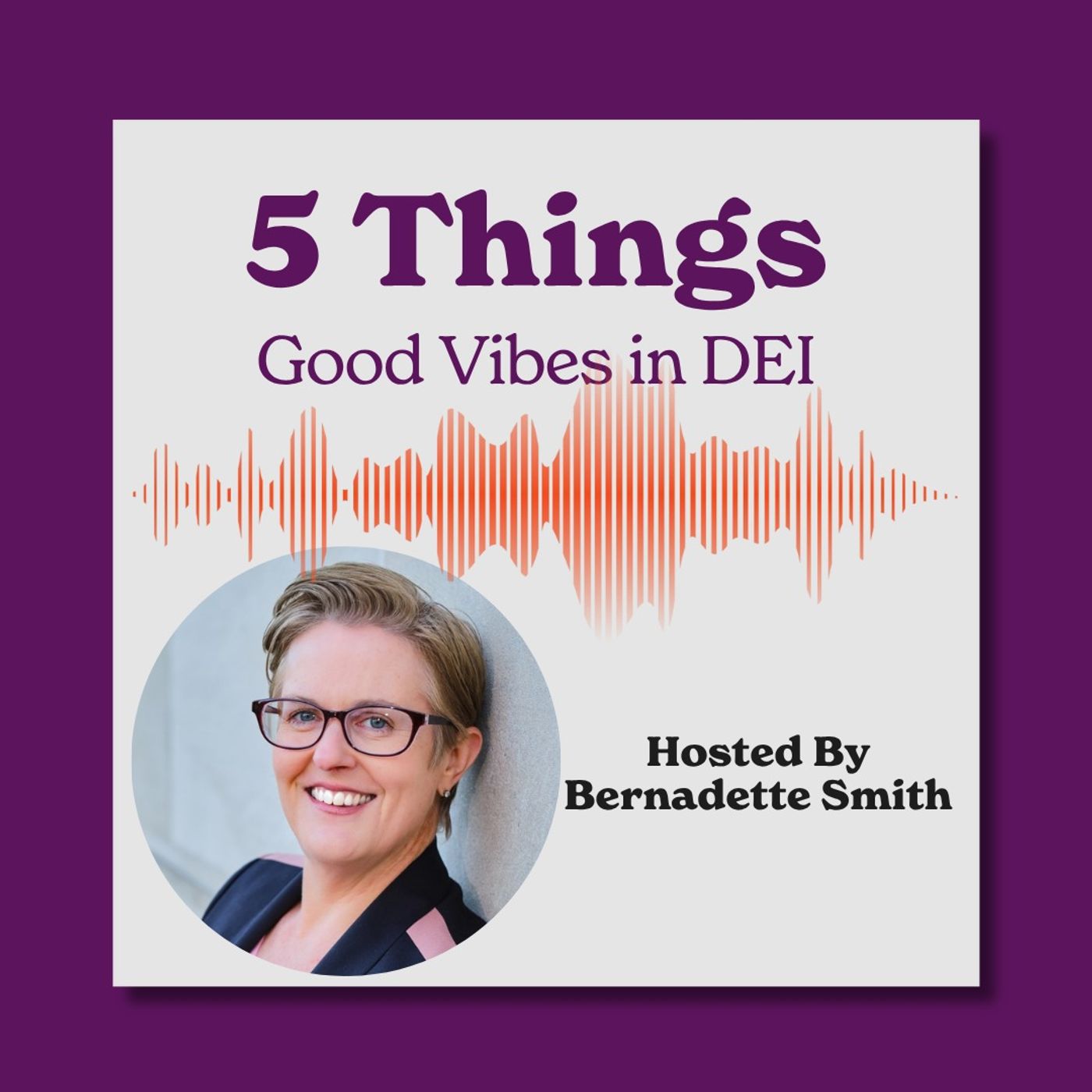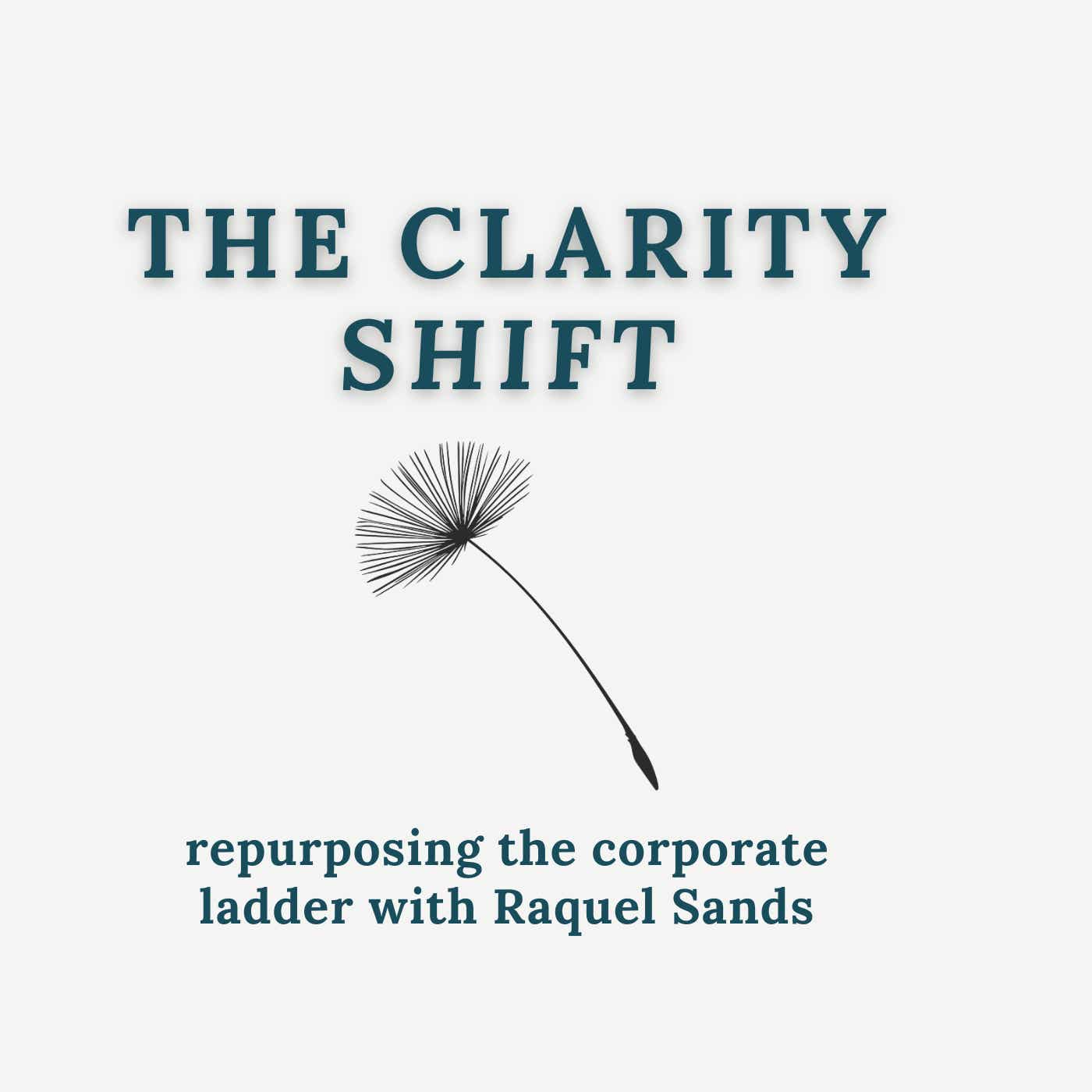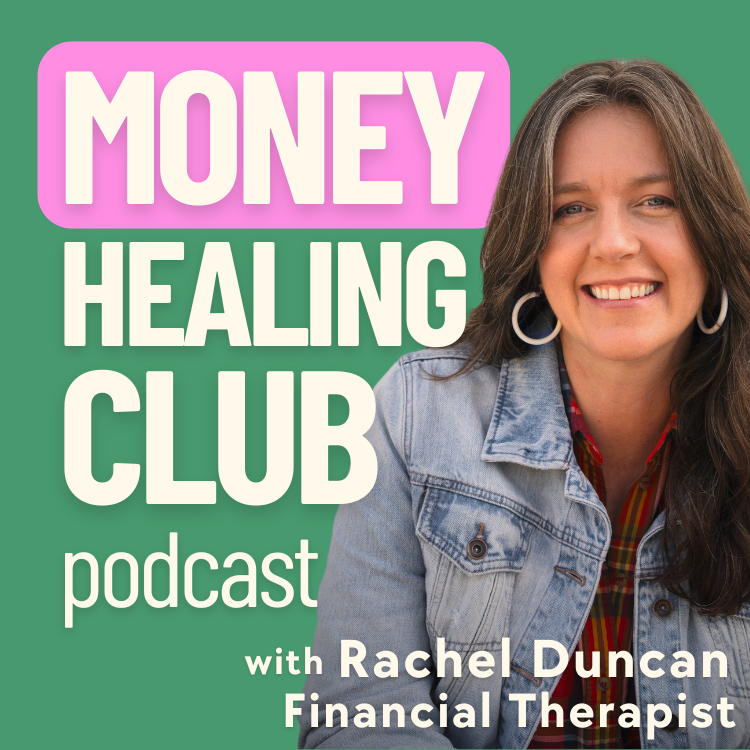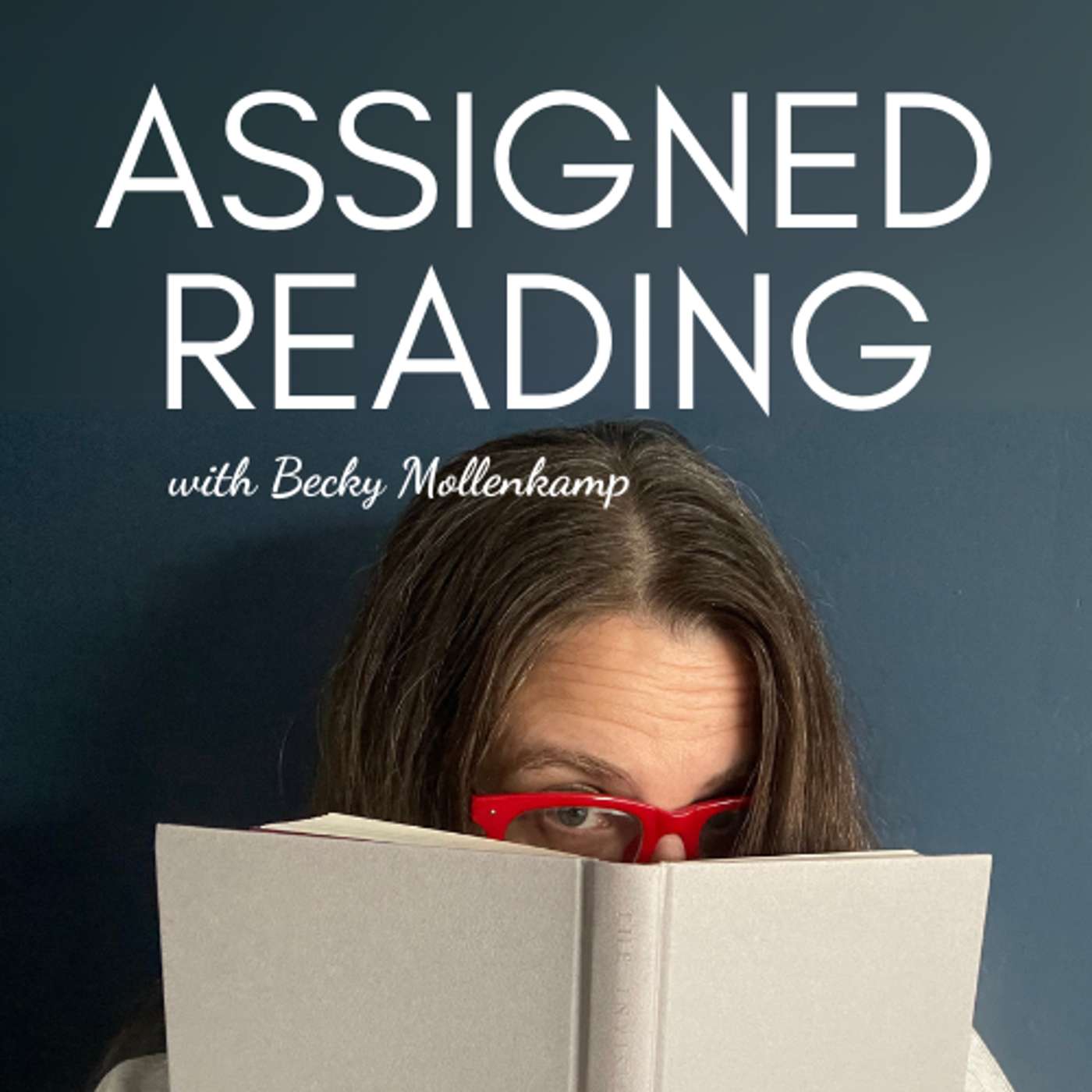
Mindset Unlimited: Tips, Tools, and Inspiration for Women in a Time of Change
Your Mindset Unlimited is a podcast for women navigating professional and life transitions who are seeking to release learned limitations and build a more holistic, liberatory version of success.
Your Host, Valerie Friedlander, is an ICF certified coach, sociologist, intersectional feminist, artist, business owner, and mom. Based in Chicago and supporting clients world-wide, she helps high-achieving women transition into their next chapter of life with clarity, confidence, and self-compassion. lead with intention, and create their definition of success that honors all aspects of their life.
In this podcast you'll find tips, tools, and inspiration to help you release the internalized limitations cultivated by our social system imbalances and lead your life with more ease and joy.
Some of the topics you'll find here are: finding fulfillment, habit shifting, motivation, time management, money mindset, stress management, impostor syndrome, productivity, work/life balance, communication, boundaries, leadership, social activism, burnout, building a business, motherhood, and more.
You can find out about Valerie and her work at www.valeriefriedlander.com
Follow her on most social media @unlimitedcoachval
Sign up for her email list at www.valeriefriedlander.com/signup
Books referenced on the podcast can be found on Bookshop.org
https://bookshop.org/lists/unlimited-podcast-book-recommendations
Mindset Unlimited: Tips, Tools, and Inspiration for Women in a Time of Change
3 Holiday Reflections for Navigating Grief, Gifts, and Gratitude
The holiday season often brings a swirl of emotions. Unfortunately, the uncomfortable emotions can often overwhelm the joy we want to embrace. Many people experience tension around grief, traditions, gift-giving, and expectations. Navigating these challenges means finding ways to honor grief, fostering meaningful connections with healthy boundaries, and using gratitude as a tool not a weapon. The reflections in this episode offer guidance for moving through the season with greater intentionality. You don't have to be perfect to create the holiday experience you want.
In this episode of Mindset Unlimited, I share some holiday reflections for navigating grief, gifts, and gratitude with intention and mindfulness.
Some of what I explore in this episode includes:
- Navigating grief and loss during the holiday season with practical emotional support strategies
- Mindful and meaningful holiday gift-giving, including setting healthy boundaries
- Embracing mindful spending and supporting financial well-being
- Practicing gratitude, hope, and courage to cultivate authentic connections and community support during holidays
Have thoughts or questions about this episode? Share them with me!
Send me a voice memo: https://www.speakpipe.com/MindsetUnlimited
LINKS TO REFERENCES MADE IN THIS EPISODE:
Loving Yourself Through Grief with Lisa Zawrotny
Reclaiming Humanity Through Grief
Navigating our Relationship with Death with Nikki Smith
Accessing the True Power of Gratitude: Beyond Individualism
Bonus Episode: Seven Ways to Reduce Holiday Stress
CONNECT WITH VALERIE:
Sign up for Valerie’s newsletter
Apply to be coached on the podcast
This podcast was produced by Valerie Friedlander Coaching
Proud member of the Feminist Podcasters Collective
Hello, my friends and welcome to another episode of Mindset unlimited. Mindset tips, tools and inspiration for women in a time of change. I'm your host. Valerie Friedlander, ICF certified coach, sociologist, intersectional feminist artist, mom and nerd, and today we are talking about three holiday reflections for navigating grief, gifts, and gratitude. Over the years, I have done a lot of support around the holidays, and I will have linked in the show notes a page that I created with a whole bunch of the resources that I have to support you through the holidays, because this time can be really stressful as much as we want to enjoy it and show up for other people and embrace the experiences that we hold, the traditions and all of the joyful things can also be really intermixed with a lot of stress. And I thought in this episode I would engage three areas that can be particularly stressful grief as one of them, and for me, personally, navigating my own grief this year, gifts. Gift giving can be incredibly stressful for a variety of reasons, and sometimes it's full of a lot of joy, but it can also be a lot, and this year in particular, there is a call to do an economic boycott and to talk about gratitude, because in this time period, we are often encouraged to feel grateful. And gratitude can be really helpful, but it can also be weaponized. I've talked about this before. That episode will be linked in the show notes, and I figured we want to talk a little bit about the practice of gratitude as well as the practice of hope and the practice of courage, all of these things that are practices that we often think are supposed to be. Feelings are really hard to engage when we're waiting to feel a certain way. So we're going to talk a little bit about some of those dynamics, and then I'm going to throw in a little reminder about boundaries. And of course, links to my episodes about boundaries, because boundaries are pretty darn key in this particular time of year when we are expected to do a lot of things, when we are around family and friends who have certain expectations about what we're going to do, and we might not be there at this particular time, or we might want to set up something different, more supportive for ourselves this year. So that's what we're covering. I love to hear from you. If you have any thoughts, any questions, anything you would like me to engage. There is a link in the show notes. You can send me a little voice memo, or you can send me an email. Also linked will be my page of holiday stress support, where I have listed a whole bunch of my resources as well as episodes to check out that may be supportive for you in this time. So now without further ado, let's get started. Let's start with grief. As difficult as that is, I think this is a really important one that we engage, because there's so many reasons why grief is present in this particular season, especially a lot of times we have traditions. We have things we usually do, and whether they have changed because someone isn't present for them anymore, or they've changed because you've realized that that needed to change for your well being, your family's well being, whatever that is, any change always has Some layer of grief in it, and it is important to recognize that and hold space for that. I'm not going to get into all the different kinds of grief and approaches to grief, because there are so many that could be an entire episode. I do have some episodes that engage some different aspects of grief. I will link those in the show notes, and I wanted to share a little bit about my recent personal reflections on grief, because I think they may be helpful. I've seen a lot of people talk about concern around holidays, especially with children, and wanting to protect the kids from the sadness, or make sure that there's still joy, or those sorts of things. And that has had to do with loss, but it's also had to do with not being able to show up for them or give them the things that they want. To give them and that sort of stuff. I'm going to engage some of that when we talk about gifts, but here first, some of what I've reflected on when it comes to grief is that grief feels like standing still by an ocean as the tide moves out and in, and the waves lap at my feet or crash over my head. In turns, there's an unpredictability to grief. Sometimes I can watch the grief roll towards me, and sometimes I've turned away I'm doing something else, and it catches me by surprise, and I do have some gratitude for having grief. In my case, in particular, with the loss of my dad, having that grief there reminds me of the love that's there and the gift of what I've had, it's also really hard, and I want to address that component of children. One of the things that I value in my life is being able to hold space for other people, and that's something that I feel I'm particularly good at. It is important to me, and I think as a parent, there's a lot of responsibility in holding space for your kids and with grief, grief feels very selfish because it is so turned inward. I was reflecting on this because early on, and it's still early on, but I wanted to be able to hold space for my mother, and I just I couldn't, because I was so deep in my own grief. And what it made me realize, though, was the value of sharing space, and that it's not just holding space that's important, but sharing space and so I could be in that focused on my pain and allow that to be present while my mom has her pain. And that was powerful to realize that sharing of space in grief. How does this apply with children? And one, it made me very grateful that I was able to be present without my kids there, because I do think there's a responsibility, as I said, to holding space for the kids, and I needed to be able to focus on me and what was happening inside of me. I think grief is a core component of our whole experience of life, and so in staying connected to our humanity, that full range of emotion and to that someone recently shared with me when I was expressing this experience that I had had where a wave caught me by surprise and my husband thought something awful had happened in that moment, not related, not realizing that a wave had hit me. And my kids were there, and I finally was able to explain what had happened, and my husband was immediately able to show up, and my kids did. They're old enough at least, to be able to process that my younger one, I could tell there was some discomfort, and so I was I was expressing this and how I show up for them, and this person let me know how when she was about my younger son's age, her father passed, and her mom never let her see the tears. Never let her see the grief. And in part, because of that, she never learned what processing grief looked like. She didn't have the example of healthy grieving and and how to do that. And so she thanked me for showing up and allowing my kids to see my grief. So the balance that I strike with that is I do also make sure that I communicate with them so while they were witness to the wave crashing over me, and I allowed that to be seen, I also then talk to them about it, and I make sure that they know it's okay to be Sad. It's okay that there are tears, and I talk about the process of grieving, because while it's not real for them, yet, there will come a time when it is, and so I want them to know that it's okay to have this full range of motion, especially because I'm raising two boys, I want them to be able to be connected to that whole experience as much as possible, and if I can model what that looks like, then that's me, both sharing and holding space. They don't happen at the same time, but they can still happen, and that's valuable. I hope that's a help. Full reflection for anyone else navigating the holiday season with grief and loss, I again, will have links in the show notes for other support resources to help you a little bit deeper. The next item I wanted to talk about was gift giving. And I've talked about gift giving before again in previous holiday episodes, the big thing when it comes to gift giving is thinking about what really matters and why. A lot of times, we have pressures, we have traditions, we have ways that we just fall into, maybe love languages, and a lot of times when we've done things certain ways, we have habits built around them, and we also make assumptions. And then there are expectations, and maybe they're ours, or maybe they're other people's, and it can become this kind of unspoken pressure around gifts. I recently had a conversation with somebody who grew up in a family where the price tag is what mattered. That's what everybody would look for. How much did you spend on me? Because that shows me how much you value me, and I made sure to let that person know, who's an in law, that the things that they make I love. I love the things that doesn't even have to have a price tag. I have found some of the spices that this person's put together for my family have just been wonderful and so useful and so thoughtful. It doesn't have to be something that has a price tag. And I wanted to make sure I had that conversation, because I know that the programming this person has is opposite that. And so when we have an awareness of some of those things when we engage the conversations, when we think about for ourselves, what matters, what's important. So again, could be a conversation with ourselves. Could be a conversation with somebody else to cut out some of the assumptions that we make and really engage what's real, what is important, thinking about it in terms of a relational thing versus a should sort of thing. I'll share another conversation that I had in a Facebook group a little while back, where someone had posted that she felt like the biggest, most selfish piece of crap person, because she does all this work, filling stockings, buying presents, lots of time making presents, whatever it is, really thinking of those people, if she doesn't do it, nobody else does, and then nobody else gets her anything, and it hurts her feelings, and she feels like a horrible person because she's upset, and she should just be happy to do those things. And if that's something that you resonate with, I want to share with you, because I know that this is this is something that comes up for a lot of people, a lot of women in particular, especially those in heterosexual relationships, it really sucks to feel taken for granted and unappreciated. And this ties to what we're going to talk about in a minute, about gratitude as a practice, instead of as a should. Because with this person, a lot of the upset, a lot of the crappy feelings came from not just doing the things, but feeling sad to be left out, to be unappreciated, to do all of this and not have it reciprocated. And it doesn't mean that you don't deserve to receive if you are giving and not receiving. Sometimes, when something doesn't happen, we think it's because we didn't deserve it, and it's not it's not because of that. It's just because it didn't happen. It doesn't mean that you shouldn't have gotten it. And I think that's a really important distinction. Even outside of the idea of gift giving, just because you're not receiving something doesn't mean you don't deserve to receive it. That can be simply being considered being given care. So remembering that just because it's not there doesn't mean you don't deserve to get it. And it can be hard to remember that, even especially when it's not happening. And so when that sort of dynamic is present, being able to step outside of the assumptions of why it's not. Happening again, because we're automatically going to, oh, I must not deserve it. They must not care about me. We're we're projecting all kinds of our own programming into this situation. Now, it may be that you did have a conversation, and you do know that's what's going on, but a lot of times it's not so being able to give yourself an opportunity to get clarity, to learn more. I mean, again, sometimes it can be a love language thing. Some people think about gift giving, and other people express care in another way. Sometimes people have dynamics in themselves that make it really hard to remember to do things in a timely fashion, and then they think, oh, because I didn't do it, I guess I can't do it. This happens to a lot of folks I know with ADHD, where there's a lot of programming that they've learned once they become an adult that Well, I guess I'm just not that person, or I guess I just can't do that thing, or I'll never pick the right thing. There are all kinds of limiting beliefs that people have internally that stop them from doing things they just they forget, and then they feel bad. And so in order to not feel bad, they just shut it down, go make excuses and whatever. There are so many reasons so to be able to have that conversation, to engage and ask for what you need, instead of assuming that because it makes sense to you, it's going to make sense to somebody else, and not just asking for what you need, but also what would help them be able to do that, not for you to do it, but inviting them into thinking outside of the box. Maybe that's not a possibility. Maybe that person just can't show up that way, and then you get to decide what you want to do with that rather than doing the same thing over and over again, expecting different results, can you be okay that that person isn't able to show up that way. Are there other ways that this person shows up for you? Can you lean on to those? Are those enough for what your needs are? If you shift your focus, if there are things that you want, you know that the people in your life can't do that, can't show up that way. Could you show up that way for yourself and what do you what do you need to do with that to be okay, to have what you need to be supported, to feel joyful. There are so many options, regardless of what anybody else can do for you, the people in your life currently, you are allowed to seek out other people who can show up that way for you, not all people can fill all roles that we need to have in our life, and it is okay to have different people in your life fulfilling different needs. It's also okay to recognize that you need other people in your life who can show up that way. This kind of goes into the setting boundaries piece that I want to touch on really quick in this area, and that has to do with a lot of people only do the first part of boundary setting, and that's communicating the boundary. Hey, I need you to do this, or I need you to not do this. The problem is that they don't do the second part, which is accountability, because boundaries aren't rules for other people. They are supports for you. They identify where you end and another person begins, and it identifies What's your part. So a lot of times, we just do the communication, and then we release all our responsibility in the situation and let someone else's behavior determine whether or not we have what we need. This gives up our power to the other person, and then we become a victim to whether or not they follow through to be able to own your own power is holding the boundary, and that is difficult. And what holding the boundary can look like is, hey, this, whatever this is, is unacceptable, and I need you to stop, or I really need this. And I need, I need you to do this for me. The second part is, if you continue to do this, then I will have to do this other thing, and then follow up to that is following through. If they do this other thing, then you're gonna, you're gonna follow through on this thing that you said you would do if they continued to either do or not do whatever it was. So that follow through. That's your accountability. It's not theirs. It's yours saying I'm going to do what I'm going to do, this is what I need, and in order to get what I need, I'm asking this from you. If you can't do this, then I'm going to do this so that I can get the thing I need. And. And that's you following through on that thing. It's hard. It means that you have to be willing to change the dynamics in the relationship. And it's especially hard because that kind of accountability can feel like an attack to someone who's not doing their own work. And that is additionally difficult. So when it comes to gifts and lots of other things, any kind of tradition, expectation, habit, that is something to be mindful of when it comes to your boundaries and what your needs are for your energy and the importance of both giving and receiving. Both of those are a gift. It's a gift to give. It's also a gift to receive. And if either of those aren't feeling like a gift, it might be time to take a look at what's going on. Sometimes there can be dynamics where receiving feels dangerous, and we've created habits in our life that are blocking receiving, and not just gift receiving, but receiving in general. So taking a look at that can be really helpful. The other thing I mentioned in the intro is that there is a nationwide economic boycott planned for November 25 through December 2. This is to highlight economic inequality, corporate greed, political corruption and government dysfunction. This is a longer boycott than a lot of recent ones have been called for, and sometimes when something feels too big, we feel overwhelmed, and then we don't take action. And so I want to encourage you, if this is something that is meaningful to you and important to you, know that it doesn't have to be perfect for it to matter. So just taking a little time to be a little bit more mindful about where you're spending money, using cash instead of cards. If you can shopping, local shopping, small businesses, any of those things can help. And it's true that not all of us can afford to not shop a sale. There are a lot of times where we need to do that, and just adding that little bit of extra mindfulness into push back against convenience can make a difference, and it can invite new habits and new ways of doing things in that might become really enjoyable traditions. So making things, shopping local, finding a new place that's enjoyable, doing an activity instead of buying more stuff, there are so many options. One thing that my family has really loved, that we've gotten from other family members is a membership to a museum, lots of possibilities. So thinking outside of the box and making sure that you're really attentive to what's important, and why is that important, and what do you want to uplift? Finally, let's talk about gratitude, gratitude, hope and courage are all emotions and practices. A lot of times we get focused on feeling something before we can do something, and when we think of it that way, we can kind of get stuck in taking the action, and it's true that we often have a thought that activates a feeling, that inspires an action, that is the root of the cognitive behavioral therapy, and The thought that evokes the feeling is often initially subconscious, and so when we can be conscious of those things, it's not that we make them go away, it's just that we're mindful about them, that we hold space for the activations, and we recognize that we don't have to feel any of these things in order to do something different, we can actually work backwards and go if I know this is a practice, what would support me in showing up to this? I've done episodes on gratitude, and I will link those in the show notes. There are layers to gratitude. It is an emotion that we have when we receive something and we feel that gratitude, but it is also a practice that we don't have to receive something for. We can seek it out, and by seeking it out, we activate parts of our brain, but when we try and force ourselves into gratitude, to feel grateful for things that maybe are harmful to. To us, we can bypass the other emotions that are important to take a look for. So this is where really noticing what's going on and doing that mindful care for our full range of emotions and the patterns that are present and why they might be present, as well as engaging a practice that supports us seeing more options. So that's what gratitude does, is when we do it as a practice, it expands our possibilities, where we can see more choices to engage. So it's not about bypassing feelings that we're having, it is about being able to choose more intentionally, and that is the same thing when it comes to hope, which can feel hard to access in the times that we're living in, as well as courage that we need to have to be able to show up. And all of these work better as practices when we're doing them with other people. One of the stories that was shared with me recently was how when people watched something on TV, they were much more inclined to feel more fear and hopelessness, whereas if they were showing up and participating with other people in solidarity, they felt less fear, even if they were the ones who were more at risk, they felt less fear because they were with other people, and there was solidarity there. So there's more hope when we are connected to other people, and we have more access to courage. And the more we do courageous things, the more we feel courageous. So it's not about necessarily feeling it first, as much as doing the thing. You know, a lot of times when we're doing something courageous, we feel the fear. That's the emotion that's present, not the courage. The fear is present. And then the action, the practice, is where we build the feeling of courage. It's not initial it's after the fact. So really remembering that when we want to embrace these experiences in life, and that are very present right now in how we are showing up to the dynamics in our world and thinking about what's important, waiting for something to come in, waiting for gratitude in order to enjoy the holidays, waiting for hope in order to see light, waiting for courage in order to Do something courageous. We don't access those things, but when we engage the behaviors, when we engage them as practices, that's when they start to come in. So taking a look at what does that look like in your life this holiday season and courage could look like saying no. Courage could look like setting a boundary, and it's okay that there may be some fear again, when you have support finding people who can help uplift you, and this isn't to bash anybody else, right, like when sometimes we pull on our anger in order to hold a boundary. And it's important to recognize that if you are feeling that feeling that that may be an emotion that's coming forward because it's trying to serve you and help you hold the boundary, not because it's necessary or even helpful in and of itself, but that it is your system's way of trying To support you with the energy to hold that boundary, and there may be other ways that you can pull on that again, connecting with people who can hold space for you, who can allow you to have the full range of feelings and help you stay accountable to what you say is important, and show up through the fear with courage to do the practice of setting the boundary, of saying, Hey, if you want to have this conversation, we need to have it under these conditions. And not by surprise, that's one that's come up for clients before. Of I can't be sidelined by a conversation about this particular topic. It needs to be a planned conversation, because otherwise I'm not prepared, emotionally and in my nervous system to engage. So setting those boundaries, having that clarity, what's important? Why is it important? And what do I need to support me and building a practice. And you can start with something very small. Start with excusing yourself from the room. It might not even be a conversation that you have. It might just be an awareness that if this starts coming up, I'm going to excuse myself and I. There are some conversations where we do want to interrupt the normalization of harmful language, harmful approaches to things, and so having the courage to say this isn't okay. So not being silent, but also doesn't mean you have to fully engage the conversation either, especially if your nervous system isn't prepared to show up the way you want to show up to the conversation, you can still interrupt harm and have a boundary of not engaging more fully. I don't have to have a debate with you about this, and this can come up a lot with certain family members that you might be interacting with. I don't have to have a debate about this to be able to say, you know, that's not okay with me, and I'm going to remove myself. All of these things, preparing in advance, to engage them, to support yourself is really key. So knowing that if there's grief present for you in the holiday season for whatever reason, preparing to give yourself support for that. Maybe it's having readings. Maybe it's having an out to go cry. Maybe it is having a conversation with people ahead of time and having a hand signal I mentioned to my husband, I'm like, maybe after that one incident where I got caught in the wave of grief, I told him, if I put my hand over my heart, it means that it's not about something that just happened. It means that it is about the waves of grief, and that way they could show up more supportive for me, instead of me, than feeling bad that I can't communicate that. No, no, it's, it's nothing you did. It's, it's the waves and so being able to prepare in advance for those sorts of things, being able to really think in advance about what you want to uphold and uplift in the holiday season, having any conversations that you think would be supportive, but also just having those preparations. And again, it might be not a conversation with the person that you feel like you might need to set a boundary with. It might be having a conversation with somebody else. Of hey, I just need to know that you are there. If I need to follow through on this boundary with this person or something along those lines, there are so many possibilities. So I hope that this has been helpful these three areas of the holiday season, and if you are struggling with any of them, I want you to know that you are not alone. There is so much going on in the world. There is so much going on even earlier than that, years and years this is these are things that come up. And so you're not alone, and you deserve support, whether or not you've had it, you still deserve to be cared for. And so if you are looking for something, please check out the show notes. I do have a lot of resources in there, and you're always welcome to reach out to me. I have a link to a free exploration call in the show notes as well, and I'm always happy to talk to you. Leave me a voice message. I'm happy to engage things in future episodes if you'd like something a little bit less direct. And I'm wishing you so much love and so much warmth and care this holiday season, and I will talk to you all next time.
Podcasts we love
Check out these other fine podcasts recommended by us, not an algorithm.

Feminist Founders: Building Profitable People-First Businesses
Becky Mollenkamp
Women Making Moves
Amy Pons
Queer News
E3 Radio
Nonprofit Mission: Impact
Carol Hamilton
Small But Mighty Agency: How to Grow Your Agency
Audrey Joy Kwan | Growth Strategist for Agencies
Disrupt Your Money
Meg K. Wheeler
Small Business Casual
Emily Aborn
Not Too Productive
Becca Rich
Messy Liberation: Feminist Conversations about Politics and Pop Culture
Becky Mollenkamp and Taina Brown
Empowered & Embodied Show
Kim Romain & Louise Neil
The Air We Breathe: Finding Well-Being That Works for You
Heather Sayers Lehman, MS, NBC-HWC, NASM-CPT, CSCS, CIEC, CWP
Careers at the End of the World: Reimagining Ambition, Work, and Your Job Search in Unprecedented Times
Jenn Walker Wall | Work Wonders Careers
The Passionistas Project Podcast
Pop Culture Passionistas
Humaning: The Shit We Need to Talk About
Steff Gallante
5 Things: Good Vibes in DEI
Bernadette Smith
The Art Of Imperfect Adulting
Amy Stone
Business as UNusual
BiCurean Consulting
The Clarity Shift
Miriam Raquel Sands | Clarity + Alignment
Cozy Conversations with The Sister Project
Lauren Massarella and Michelle Anderson
Departure Menopause: Neurodivergent-Affirming & Weight-Inclusive Care
Melinda Staehling
The Empress and The Fool
Sarah Dittmore & Kaitlyn Gulock
The Good Pod
Jason Reed and Marissa Garza
Gratitude Geek | Business Education for Gen X Women Solopreneurs
Kandas Rodarte | Gen X Growth Coach for Women Solopreneurs
Mental Health Warrior & Neurodivergent Advocate
Amy D. Taylor | Mental Health Warrior & Neurodivergent Advocate
Money Healing Club Podcast
Rachel Duncan
noseyAF: Conversations about Art, Activism, and Social Change
Stephanie Graham
The RestLab with Jordan Maney
Jordan A. Maney
Was It Chance?
Alan Seales, Heather Vickery & Broadway Podcast Network
White Homework
Tori Williams Douglass, Benjamin Faye
Playing Big with Lindsay Johnson
Lindsay Johnson, The Radical Connector






